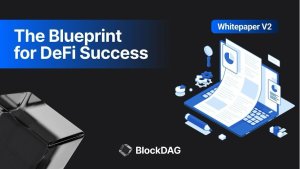Once bitten, twice shy: FXCM’s risk management shift pays dividends during volatile period
We take a look at FXCM’s risk management emphasis, CEO Drew Niv speaks candidly and pragmatically.

Doing the right thing doesn’t always result in reward, unfortunately.
When FXCM, the world’s largest retail FX brokerage, adopted a completely a-book, agency execution model, considering itself to be providing customers with a fully transparent and live market with no intervention whatsoever by dealers, the company was most certainly operating in good faith.
Low latency execution and cast iron trust between broker and client is fostered by conducting business in this manner, however then came January 15, 2015 when the Swiss National Bank removed its 1.20 peg on the EUR CHF pairs, suddenly, with no warning, sending the currency markets into an unprecedented wave of volatility and creating exposure to negative client balances that the a-book element of many brokerages were subjected to, and in some cases causing long established firms to declare insolvency.
Indeed, FXCM was one firm that was affected, and due to the a-book nature of its execution model, the exposure was substantial and immediate, resulting in an immediate $225 million negative equity having been calculated the very next day.
Unlike many events that cause volatility, the Swiss National Bank’s removal of the 1.20 peg was a complete surprise to the entire industry as it was conducted without prior warning, which actually placed the emphasis once again on internal risk management and the merits of b-booking certain order flow as long as real market prices are adhered to, thus giving a correct market environment whilst mitigating exposure.
During a recent meeting at FXCM’s head office in New York, FXCM CEO Drew Niv explained to FinanceFeeds that it had begun looking at not only risk management on spot FX products, but was also in the process of developing new CFDs, a CFD being a contract for difference, which is effectively an OTC futures product.
CFDs have been very popular in the United Kingdom for many years, and are traded via specific proprietary platforms, however Mr. Niv considered the development of a specialist version of CFDs in order to provide a confident product to clients whilst also lowering risk. The company has its own proprietary platform, within which CFDs could certainly be engineered.
“The proprietary system on which the CFD trading environment is built on uses a different back end to that of the spot FX platform, but the front end is the same account, uses the same APIs to connect to liquidity that were launched in 2010” said Mr. Niv.
The company began buying HFT (high frequency traders) market making technology around one year ago, which would enable FXCM to essentially make markets differently in CFDs.
“Market Making is an often misapplied term” explained Mr. Niv.
“When people refer to market making in retail brokerages, what they refer to is relating to the broker’s time when he looks at a trade. He looks at it through the lifetime of a trade, which is from entry to exit of the trade. This should be a loss on balance.”
Whilst the recent UK referendum results created a degree of market volatility, the circumstances were completely different as this was a pre-announced geopolitical event for which companies could prepare, unlike that of the Swiss National Bank’s black swan in January last year.
Even so, FXCM has understood the importance of being able to manage risk and has confirmed that its systems and operations functioned without any material adversity during the Brexit voting period.
Mr Niv said “FXCM is happy with the risk management steps we took including our decision to gradually raise margins as we did heading into the vote. THe FXCM Trading Station operated normally throughout the Brexit market volatility and we are extremely pleased with our liquidity providers, our staff who worked through the night and our clients who continued to heed our warnings during these historical market movements.”
FXCM’s risk committee will continue to closely monitor and hedge the Company’s exposure, margins will remain elevated until we see the market return to more normal liquidity levels and we hope to relax margin requirements in the coming days.
During the meeting in New York recently, Mr. Niv explained his view on execution to FinanceFeeds “Most dealers likely take into account that between 50% or 70% should be calculated as a loss. A lot of brokerages hedge because they have capital restrictions so they will hedge after half an hour” he said.
“In terms of execution, we all look closely at ensuring that we offer better margins and liquidity. At top of book you can put a better trade on. The problem is that you cannot win in the first ten minutes” said Mr. Niv.
“It’s ok if you put a trade on, and you say this guy puts a trade on, and then the brokerage does not want to take that particular trade. What we did was take the trader who makes money in four seconds as an example. You cannot do this unless you think like a HFT” he said.
“Usually, the broker wants the trade to go against the customer for just one second. Because the speed variation allows the super aggressive retail scalper that every one hates is never profitable in the first few milliseconds. We don’t hate these types of traders and with our new technology on enhanced CFD indices we encourage them to trade with FXCM” – Drew Niv, CEO, FXCM
Whilst the risk management is a necessity, Mr. Niv considers the outcome of the Swiss National Bank event to have been somewhat the wrong lesson. “The Swiss National Bank event has helped the industry take more risk management, which is a good thing” said Mr. Niv. “But instead, the wrong lesson was learned. Many unregulated B-book companies in obscure jurisdictions actually made a lot of money from this and that is the first problem. The second is that we were already facing a massive credit crunch, and banks are cutting off all access. The black swan event accelerated this and targeted the retail FX sector, and banks cut credit to a lot of people.
“There is a customer base of very large clients which are retail brokers because they have nowhere else to go. This did however open up the opportunity we recently took in offering a prime of prime solution for this crowd.”









